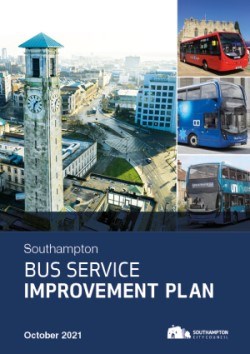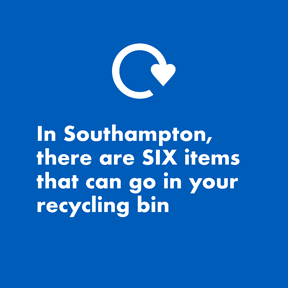Council submits bid to Government for share of £3bn Bus Back Better
In March 2021 the Government announced its National Bus Strategy ‘Bus Back Better’ and £3bn in funding to improve bus services outside of London. This set out a vision and opportunity to deliver better bus services (Bus Back Better) for passengers across England as buses recovered from the pandemic
The Strategy requested that Council’s with transport powers, such as Southampton City Council, work in partnership with bus operators and stakeholders on an ambition and vision for buses in their local area. This is set out in a Bus Service Improvement Plan (BSIP) and progression towards an Enhanced Partnership (EP).

In July 20201 Southampton City Council agreed to pursue an Enhanced Partnership with our local bus operators and to develop the BSIP. The Council has now approved its Bus Service Improvement Plan (BSIP) in a bid to secure a share of the £3bn funding.
The overarching vision for the BSIP is that buses are an attractive choice with a bus network that is built on reliability, green technology, integration, value for money, inclusivity and partnership.
Following a public survey, responded to by over 2,200 people, a series of ambitions have been developed that aim to increase the number of people travelling by bus in Southampton.
Some of the ambitions highlighted in the BSIP include:
- Higher quality, modern accessible buses
- Faster and reliable services through enhanced traffic management including traffic signal bus priority
- Cheaper and affordable ticket and fare options for young people, families and groups
- Looking at better bus services to areas of Southampton currently not well served by bus
- Using technology such as a capped fare or mobile apps so people get the best value fare across all operators
- Improving the access to bus stops so they are safe, secure and provide accurate and up to date real-time information
- Audio-visual information and USB charging on all buses
- Starting roll out of zero emission buses in Southampton
All of this is reliant on Government funding and the BSIP sets out the case for investment in Southampton and into Hampshire.
Once submitted, the Council will continue to work in partnership with the bus operators, stakeholders and our neighbours including Hampshire County Council to develop the Enhanced Partnership as the next step in the process.
Councillor Jeremy Moulton, Deputy Leader and Cabinet Member for Growth, commented:
“The Bus Service Improvement Plan sets out the council’s vision to meet the city’s needs now, and in future. By submitting our BSIP, we are putting forward a strong plan that will help to deliver on our promise to get Southampton moving. Securing the funding will help us to take the first steps towards an integrated Southampton Mass Transit System in the future.”
To shape the BSIP, Southampton City Council carried out an online engagement survey which received over 2,200 responses – 88% of whom were residents in the city. The survey explored why some respondents chose to use the car over using the bus for certain journeys. The most common reasons given were that it was significantly quicker to use the car than the bus (38%) and buses not going to the places they wanted to travel to (37%).
Crucially, the survey focussed on what improvements to bus services would encourage people to use buses for more journeys in the city. 72% of respondents stated they would consider using buses more if journey times on local bus services were made quicker, and 78% would use the bus more if bus routes served the areas of the city where they currently don’t. Further to this, 74% said they would consider using the bus if the fares were lowered while 74% would consider using the bus if the fares were simplified.
Southampton is above the England and South East averages for bus mode share for travel to work with 9% of all trips to work in Southampton being made by bus. This mode share for bus compares to cities such as Bristol, Exeter, and Derby, however, it is lower than cities such as Oxford, Brighton, Nottingham, and Reading. Southampton is among the cheapest places to travel by bus in the UK.
The COVID pandemic has impacted on bus travel in Southampton. The increase in home working has had an impact on the usage of bus as around 28% of people living in Southampton worked from home during 2020. Bus usage dropped with buses in Autumn 2020 carrying 60% of their pre-COVID patronage levels.


